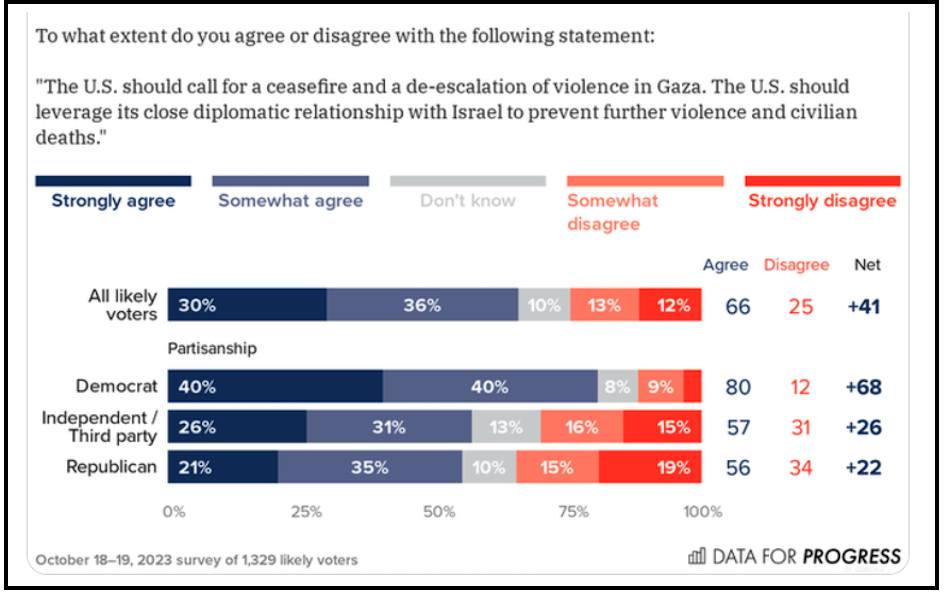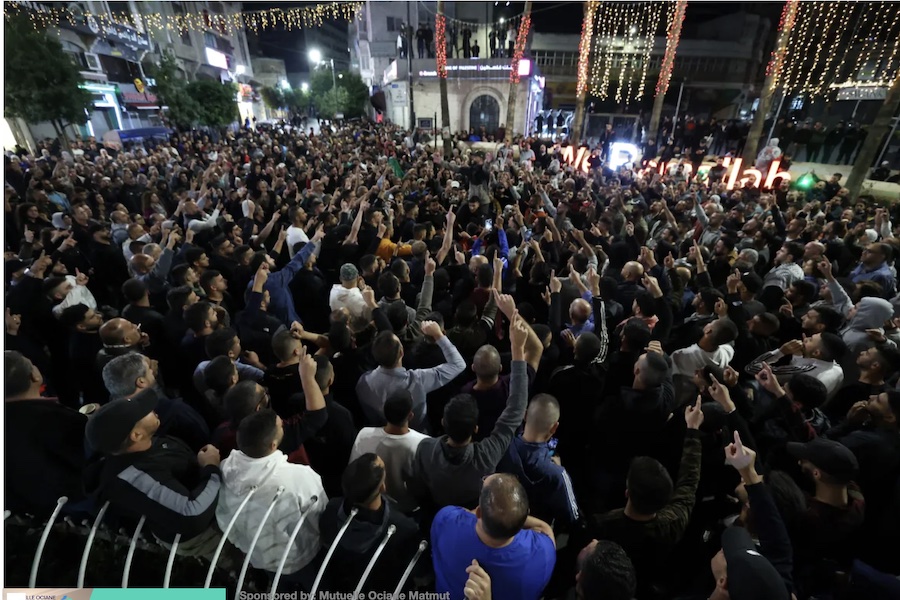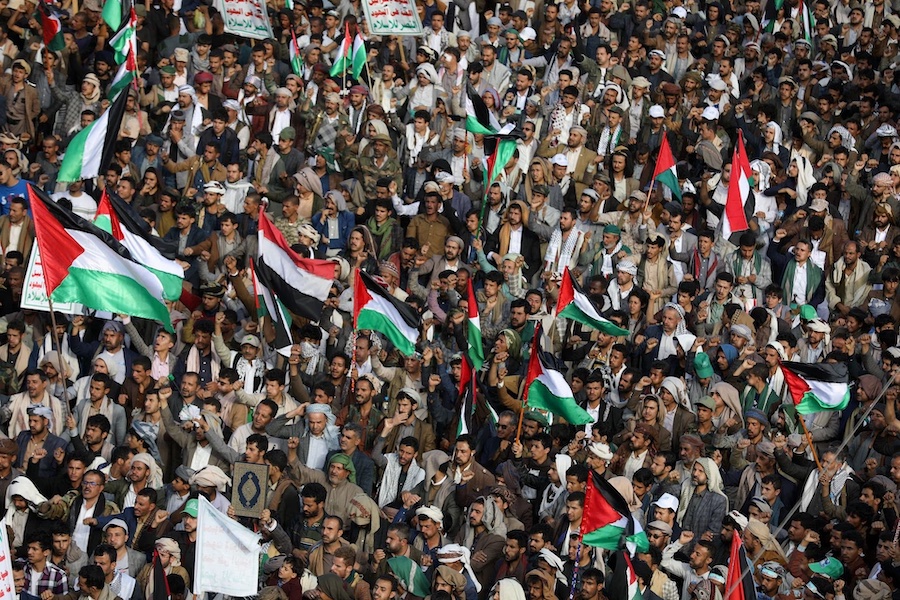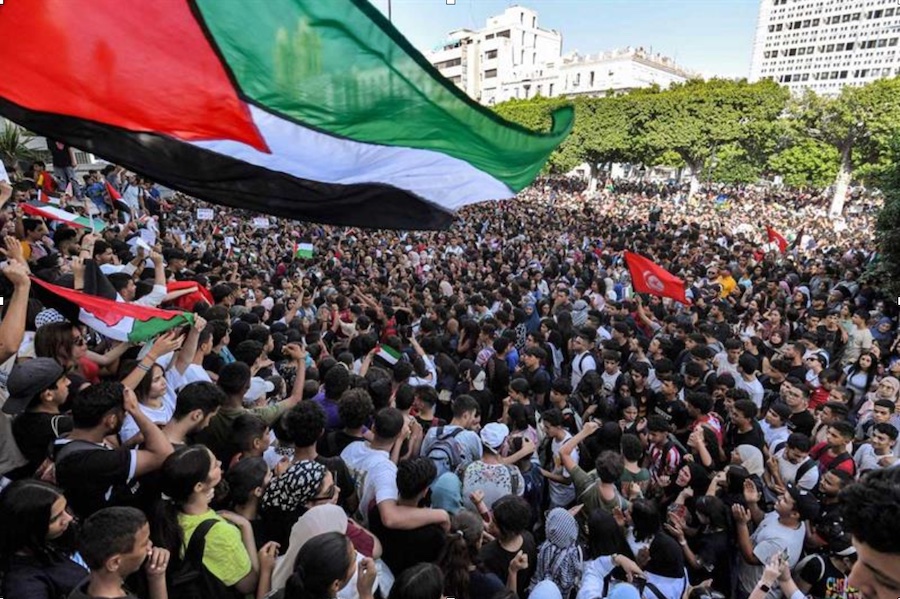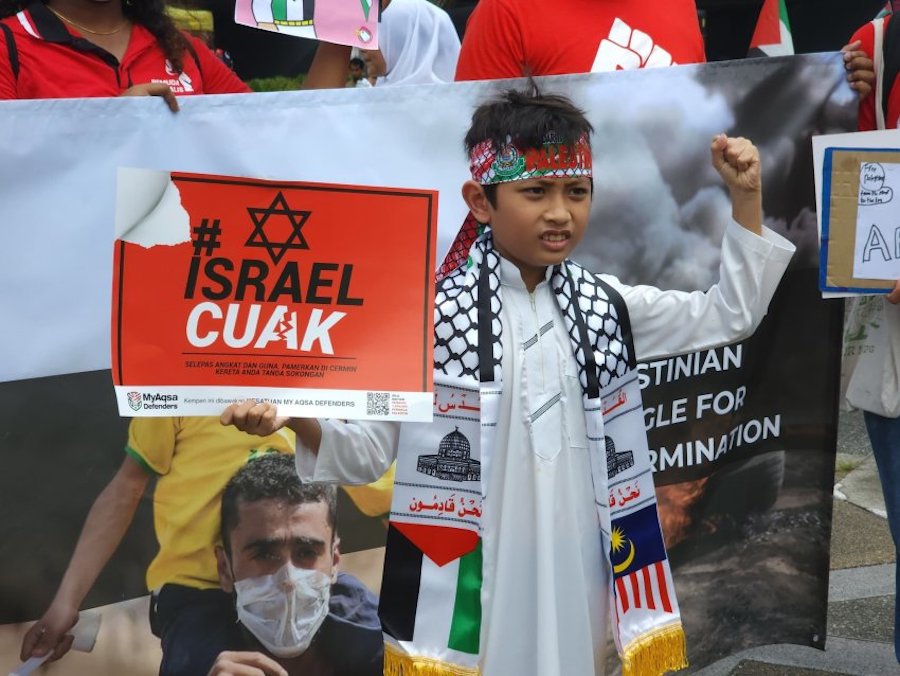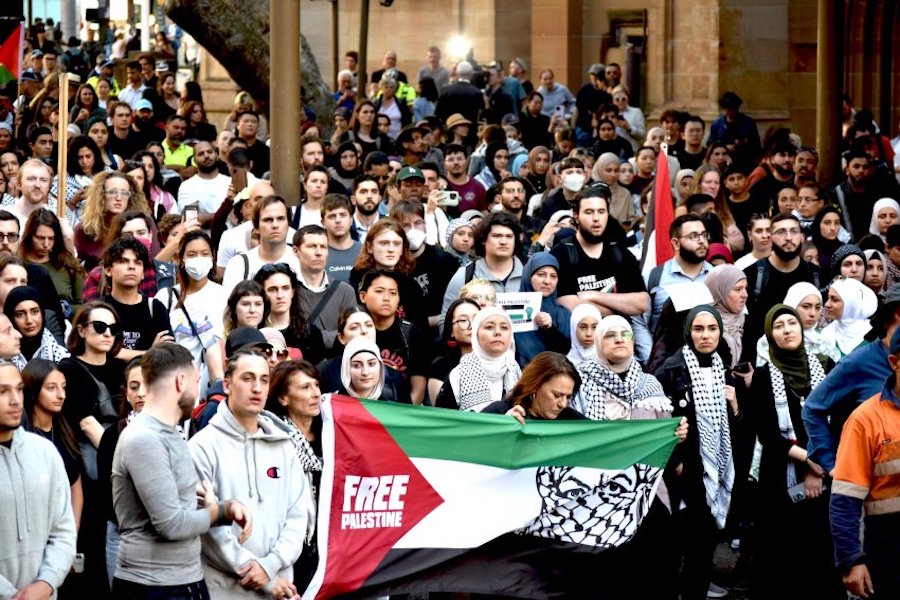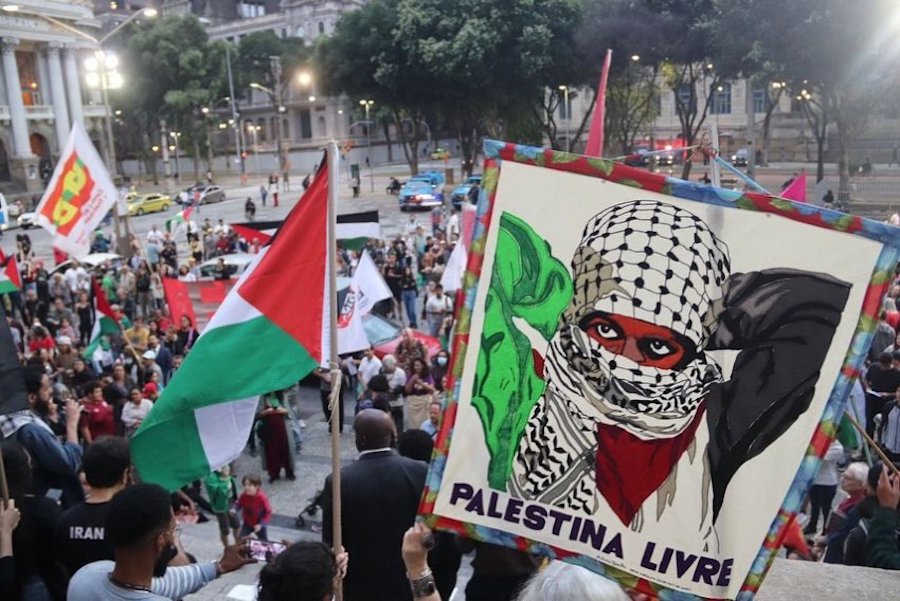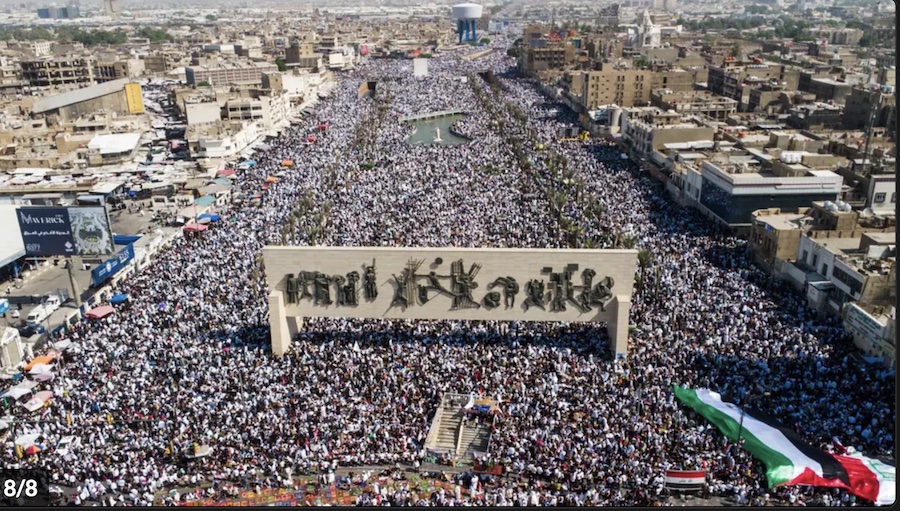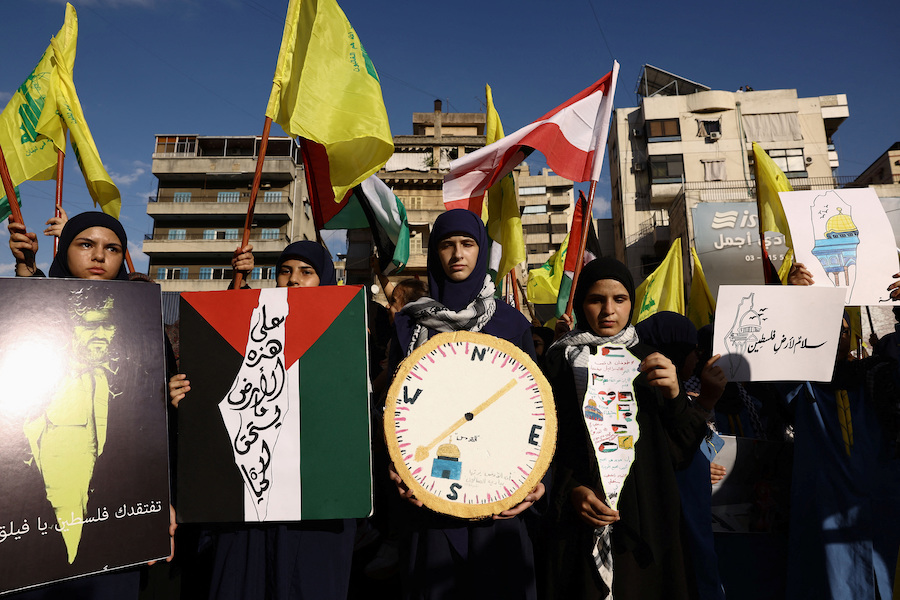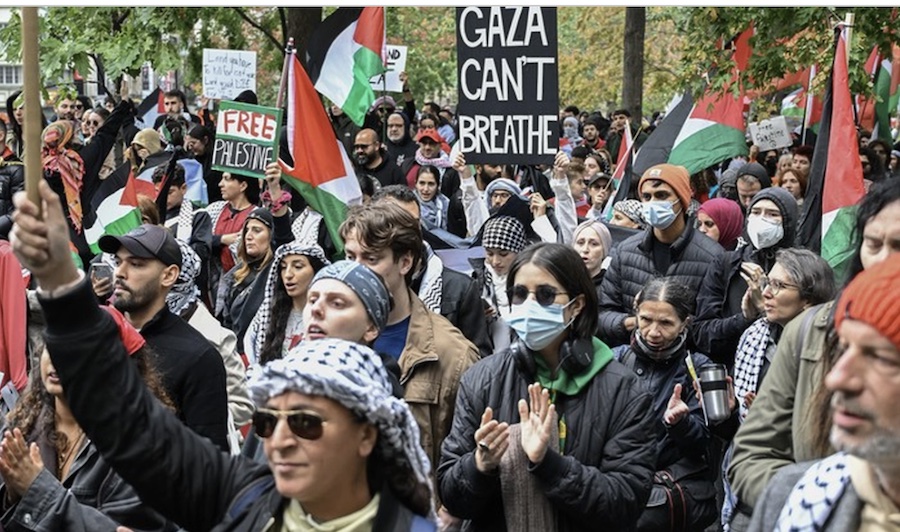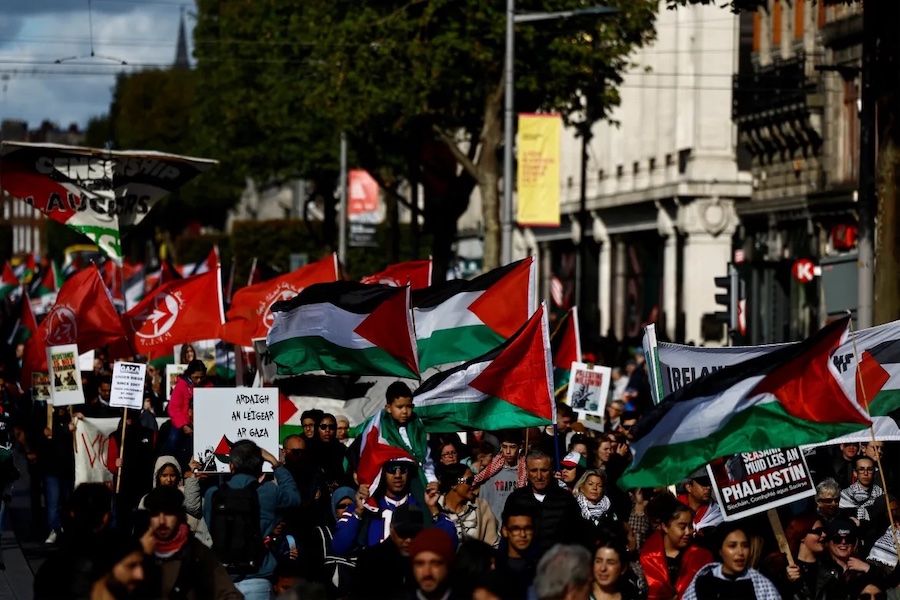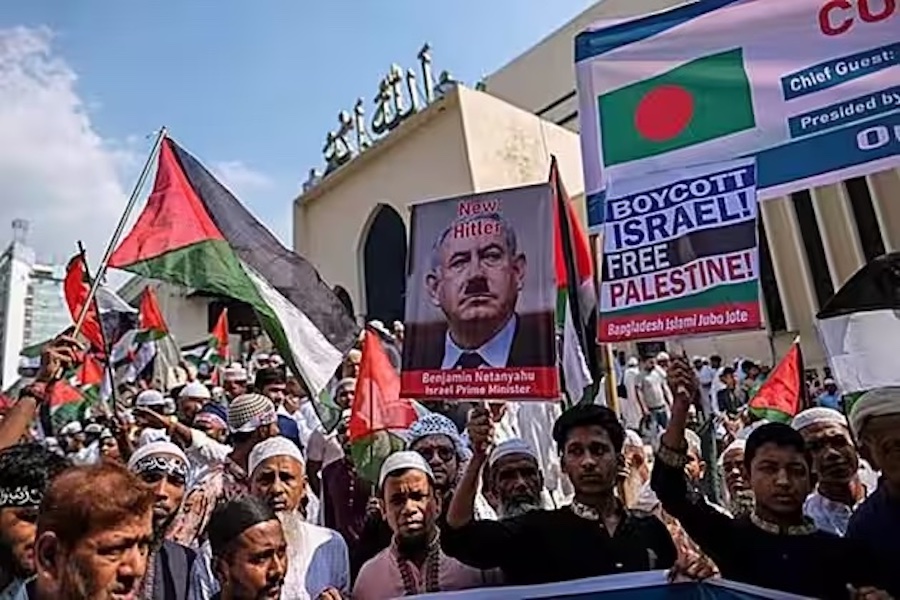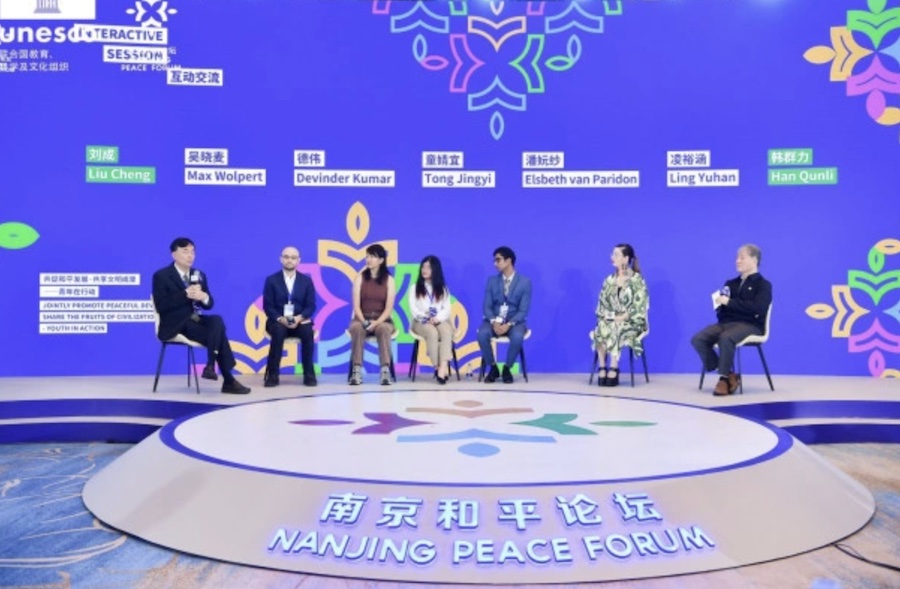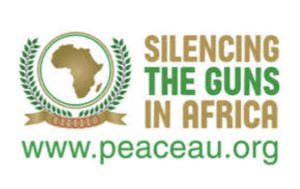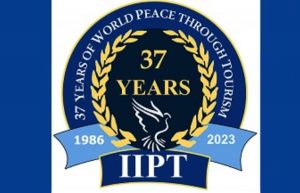FREE FLOW OF INFORMATION
An article from the United Nations
With the catastrophic potential inherent in nuclear weapons hanging over the fate of humankind, the only way to prevent the use of such arsenals — and the Armageddon such an act would unleash — is to completely eliminate them, speakers said today during the General Assembly’s annual high-level commemoration of the International Day for the Total Elimination of Nuclear Weapons.
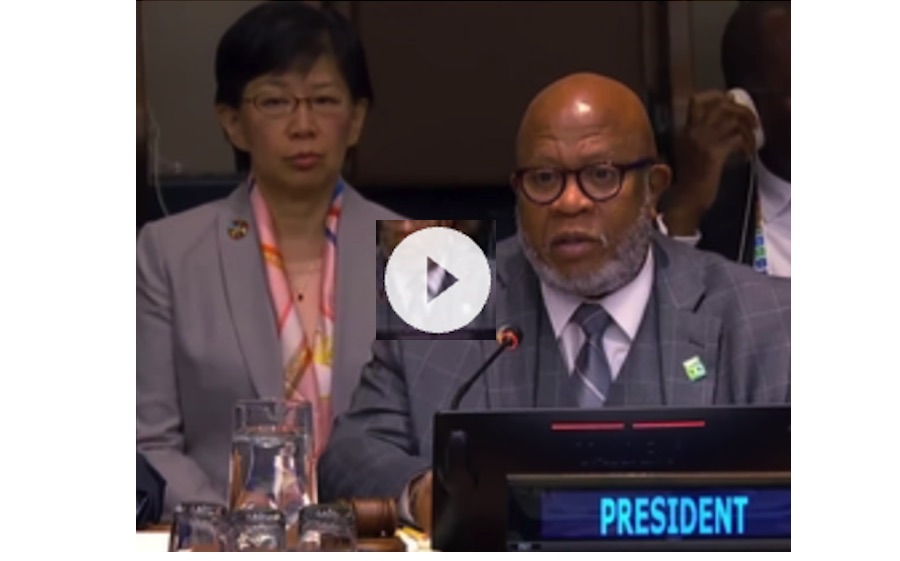
Dennis Francis (General Assembly President) in video of the High-Level Meeting on Elimination of Nuclear Weapons
United Nations Secretary-General António Guterres observed that “nuclear sabres are again being rattled” in a world that has “spent too long under the shadow of nuclear weapons” as he delivered opening remarks. “Let’s make history by consigning nuclear weapons to history,” he added.
To do so, however, nuclear-weapon States must lead the way, he stressed, calling on them to meet their disarmament obligations. Any use of nuclear weapons would unleash a humanitarian catastrophe of epic proportions. “This is the timeless message of the hibakusha — the survivors of Hiroshima and Nagasaki,” he said, adding that the “New Agenda for Peace” can help usher in a nuclear-weapon-free world.
Also delivering introductory remarks was Dennis Francis (Trinidad and Tobago), President of the General Assembly, who stated: “The risk of nuclear annihilation is not a chapter from our past; it is a haunting reality of our present.” The more agitated people and nations become, the higher the risk of stumbling mistakenly into a nuclear nightmare. “There is only one path to avoid nuclear Armageddon: that is the complete and absolute elimination of nuclear weapons,” he emphasized.
In the ensuing discussion, nearly 80 speakers took the floor to present various approaches towards creating a world free of such weapons. Many delegates pushed for the advancement of the Treaty on the Prohibition of Nuclear Weapons and commitment to the existing nuclear-disarmament-and-non-proliferation regime. Some speakers, however, expressed frustration over the slow pace of disarmament and warned against ongoing nuclear modernization that is creating arsenals of improved speed, accuracy and stealth.
“The weapons of war must be abolished before they abolish us,” said Ali Sabry, Minister for Foreign Affairs of Sri Lanka, borrowing the words of former United States President John F. Kennedy, who addressed the General Assembly in 1961. These words of caution are directly relevant to today’s world, he said. For its part, Sri Lanka prides itself in offering a sense of forward movement through its accession to the Treaty on the Prohibition of Nuclear Weapons just days ago.
Yashar T. Aliyev (Azerbaijan), speaking for the Non-Aligned Movement, said that nuclear-weapon States’ lack of progress towards the total elimination of their nuclear arsenals remains an issue of deep concern to the Movement, urging concrete steps in this area. He added that the annual observance of the International Day is an effective means with which to draw the international public’s attention to the unacceptable dangers posed by nuclear weapons.
Keith McBean (Ireland) said that today’s meeting occurs at a time of crisis, spotlighting the Russian Federation’s war of aggression against Ukraine along with its accompanying nuclear threats. Urging Moscow to refrain from such rhetoric, he stressed: “Any and all nuclear threats, whether explicit or implicit and irrespective of circumstance, are unacceptable.” He also expressed regret that the Kremlin blocked agreement on a final outcome at the tenth Review Conference of the Parties to the Treaty on the Non-Proliferation of Nuclear Weapons.
Charles Jose, Undersecretary for Multilateral Affairs and International Economic Relations in the Department of Foreign Affairs of the Philippines, said that — despite reductions in the deployment of nuclear weapons since the cold war — “not a single one has been physically destroyed under any treaty”. This, coupled with the alarming modernization and proliferation of nuclear arms, calls for urgent action, he said, joining a growing call for nuclear-weapon States to completely disarm.
(continued in right column)
Question(s) related to this article:
What is the United Nations doing for a culture of peace?
(continued from left column)
In the same vein, Zaheer Laher, Chief Director of the Department of International Relations and Cooperation of South Africa, warned that greater emphasis on nuclear weapons’ role in security doctrines heightens the possibility of a new nuclear arms race. In this “hypocrisy of nuclear apartheid”, he pointed out that the security of some risks the security of all humanity. The establishment of nuclear-weapon-free zones, such as the one in Africa, is an important disarmament and non-proliferation measure, and he expressed support for the establishment of new zones — especially in regions of tension such as the Middle East and Europe.
On that, Osama Mahmoud Abdelkhalek Mahmoud (Egypt), speaking for the Arab Group, stressed the importance of establishing a Middle East free of nuclear weapons and other weapons of mass destruction. Expressing concern over Israel’s nuclear stockpiles, he underlined the need to avoid an arms race in the region. As such, he commended the participation of States — while spotlighting Israel’s absence — in conferences aimed at establishing a nuclear-weapon-free zone in the Middle East.
“Latin America and the Caribbean have done their part,” said Inga Rhonda King (Saint Vincent and the Grenadines), who spoke for the Community of Latin American and Caribbean States (CELAC). “It is well known that the countries of our region do not possess nuclear weapons,” she said, referring to the Treaty of Tlatelolco, which established a nuclear-weapons-free zone in that region.
Similarly, Tarek Ladeb (Tunisia), speaking for the African Group, underscored its commitment to the Treaty of Pelindaba, which declared Africa a nuclear-weapons-free zone. This prohibits, among other things, the stationing or testing of nuclear explosive devices on the continent. He urged all Member States — especially nuclear Powers and those under the so-called “nuclear umbrella” — to urgently sign and ratify the Treaty on the Prohibition of Nuclear Weapons and pursue the goal of a world free of such weapons.
Hala Hameed, head of the Bilateral Department at the Ministry of Foreign Affairs of the Maldives, was among those who recalled the very first Assembly resolution — adopted in 1946 — which identified nuclear disarmament as a leading goal of the United Nations. To that end, the Maldives joined the 68 States that have ratified or acceded to the Treaty on the Prohibition of Nuclear Weapons, she noted, urging all Member States who have not done so to ratify the instrument.
While many speakers echoed the call to advance that accord, Ishikane Kimihiro (Japan) was among those who underlined the importance of the Non-Proliferation Treaty. Urging nuclear-weapon States to proactively fulfil their obligations under the latter, he also pledged to cooperate with the international community to address non-proliferation issues related to the Democratic People’s Republic of Korea and Iran.
In the absence of his counterparts from certain top nuclear-weapon States at today’s meeting, Geng Shuang (China) said that his country has consistently upheld a nuclear strategy of self-defence. Beijing, he stated, “always keeps its capabilities at the minimum level required” to safeguard national security, never engages in arms races with other nuclear-weapon States and neither provides a nuclear umbrella nor deploys weapons abroad.
As well, Sanjay Kumar Verma, Joint Secretary in the Ministry of External Affairs of India, said that his country is a responsible nuclear-weapon State and is committed to maintaining credible minimum deterrence with a posture of “no first use” and “non-use against non-nuclear-weapon States”.
Meanwhile, Zahra Ershadi (Iran) noted that allocations by the United States and the United Kingdom of $50.9 billion and £3 billion, respectively, to their nuclear-weapon programmes clearly indicate the ongoing failure of nuclear Powers to meet their disarmament obligations.
On that, Bruno Rodríguez Parrilla, Minister for Foreign Affairs of Cuba, warned that global military spending grew for the eighth consecutive year in 2022 to reach an all-time high of $2.24 trillion. Calling this “scandalous”, he said that millions of dollars spent on nuclear weapons should go to alleviate poverty and hunger.
Building on that was Michael Bootii Nauan, Minister for Tourism, Commerce, Industry and Cooperatives of Kiribati, who detailed the impacts of nuclear-weapon testing in 1958 on his country’s people. Unaware of the dangers of such tests, many would later complain about all sorts of untreatable illnesses and die. He therefore issued a demand to safely dissemble all nuclear weapons and re-direct their “nuclear profits” to peace and industrial development.

